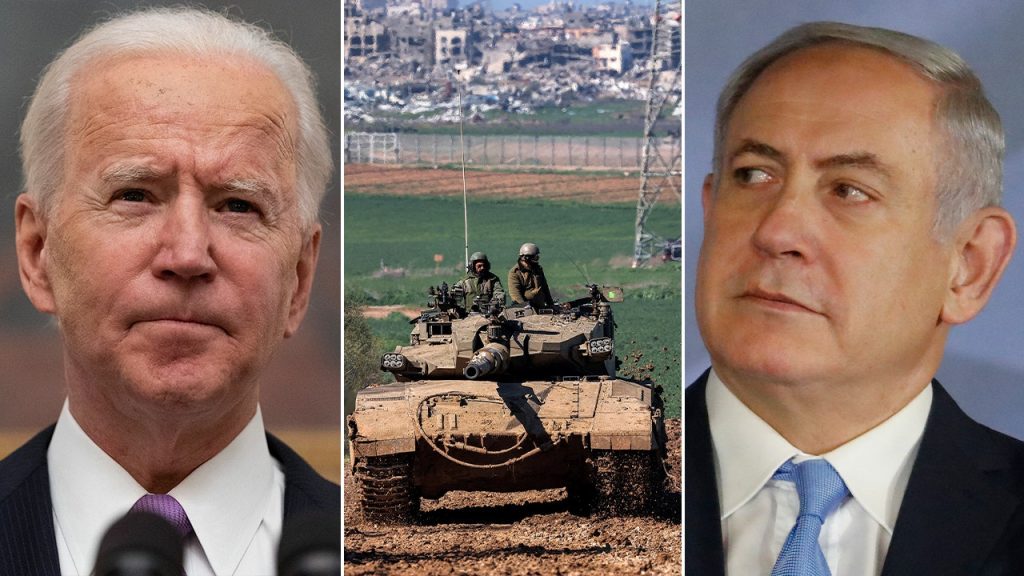President Biden’s ultimatum of withholding offensive weapons to Israel if they were to launch an invasion of Rafah has led to increased tensions in the region. Rocket attacks rained down on Israel from Rafah, with Hamas launching rockets at the southern Israeli city of Beersheva and Hezbollah sending rockets into the northern Israeli city of Kiryat Shmona. The violence resulted in the death of four Israeli soldiers within the Gaza Strip, as the conflict continued to escalate.
Former IDF combat commander Jonathan Conricus expressed concern that tension between the U.S. and Israel could embolden Israel’s enemies and lead to increased violence. The decision to withhold offensive weapons from Israel was criticized by many, including former Ambassador to Israel David Friedman, who accused Biden of emboldening Hamas. General Jack Keane also criticized Biden’s decision, stating that he was “walking away from Israel,” while the U.S. government insisted that they were fully behind Israel and providing support to defend against attacks.
The use of hostages by Hamas, including Americans, has complicated negotiations and heightened tensions in the region. Hamas leader Yahya Sinwar is believed to be using hostages as human shields to evade capture by Israeli forces. The decision to block offensive weapons to Israel raised concerns about the potential impact on negotiations and the safety of hostages held by Hamas. However, the State Department did not directly address questions about the impact of this decision on Hamas and Hezbollah.
Criticism of Biden’s arms directive came from a group of retired U.S. military leaders who argued that U.S. support for Israel should be clear, unwavering, and not conditioned. They emphasized the importance of standing by Israel in the face of threats from Iran and its terrorist proxies in the region. The letter highlighted the shared interests between the U.S. and Israel in combating common enemies, such as Iran and its allies, and stressed the need for a strong partnership in the face of escalating tensions.
Experts warned that Iran and Hezbollah could escalate the conflict in response to perceived weaknesses or divisions between the U.S. and Israel. The ongoing violence in the region and the decision to withhold offensive weapons were seen as potential factors that could lead to further escalation. Concerns were raised about the implications of a rift between the U.S. and Israel on regional security and stability, as well as the safety of hostages held by Hamas.
Despite assurances from the White House that the U.S. stood fully behind Israel, the decision to withhold offensive weapons raised questions about the future of the U.S.-Israel relationship. The impact of the decision on negotiations, hostages, and regional stability remained uncertain as tensions continued to mount. The need for a clear and unwavering commitment to Israel’s security in the face of ongoing threats was emphasized by experts and former military officials.


